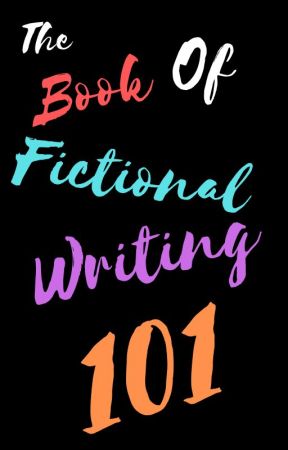Fantasy: Incorporates the fantastical into the plot, which can not be explained by scientific reason.
Romance: In which the primary focus is the romantic tension between the protagonist and one or more other characters. The love-triangle is often used in such stories, and appears frequently to the bane of many. (Not to be confused with the Romantic movement)
Science Fiction: Contains elements that can be explained by scientific reason.
Historical Fiction: A story set in the past, based around real events and people. Characters may be–or interact with–historical figures.
General Fiction: Focuses on the everyday experiences and conflicts of the protagonist. Overlaps with the film genre of "slice of life." (See slice of life)
Drama: A specific type of fiction told through performance, whether that be a radio show, podcast, play, musical, pantomime, film, slam-poem, etc.
*Comedy: A lighthearted genre focusing on humorous and absurd elements. One of two categories of Greek plays.
**Dark comedy/Black Comedy: A style that makes light of a taboo subject
*Tragedy: A serious genre with a solemn tone; a hallmark is the protagonist begins with everything but in the end loses it all due to his fatal flaw, usually hubris, but not always. In Hamlet, the titular character's flaw is that he's indecisive and the master procrastinator. In Oedipus Rex, Oedipus' desire to uncover the truth and save the city from plague ultimately leads to the revelation that he killed his father and married his mother.'There's usually a lot of death in these plays, often brought on by suicide.
Slice-of-Life: In which the conflict centers around the day-to-day challenges of character's lives.
Supernatural: In which elements of the supernatural impact the story, usually in a fantasy setting.
Realism: A unrealistic premise examining it as if it was a reality, i.e. what if people had wings? (Maximum Ride/A Old Man With Enormous Wings)
Speculative fiction: A narrative that examines the impact of changes to what's real and possible. Differs from realism in that it may have realistic elements, but not all speculative fiction is realistic. For example, a speculative fiction story may examine what might happen if humanity suddenly vanishes, or what might occur if certain people developed superpowers, but not others.
Grimdark: Speculative fiction stories that are grim and dark, often excessively so. As it is a relatively recent genre, it is hard to exactly pin down what story can be classified as a grimdark story. Lots of stories are gritty and dark, but may not be labeled 'grimdark'; Grimdark and realism are NOT THE SAME THING. That being said, there are distinguishing hallmarks: dubious main and/or central characters with NO redeeming qualities (this does not mean that they cannot be relatable or sympathetic, i.e. A Clockwork Orange's protagonist Alex), no heroes or "good guys," oppressive setting, NO happy endings, only tragic and/or satisfying ones, no permeant character development. Inspired by the tabletop RPG Warhammer: 40k, of which the tagline is "In the grim darkness of the far future, there is only war."
Gothic/Dark Romantic: Combines elements of the Romantic movement with the macabre. Edgar Allen Poe is generally held as the genre's figurehead, with Mary Shelley, Nathaniel Hawthorn, and Victor Hugo contributing.
Absurdism: A story in which events happen for seemingly no reason in order to push the audience outside their comfort zone and question societal norms.
YA novels: An acronym for "Young Adult", the target audience is those in their early to mid teens. Also known as "Youth fiction" and "Teen fiction." The genre was arguably started by S.E. Hinton's novel, The Outsiders, which was written when she was a teenager.

YOU ARE READING
The Book of Fictional Writing 101
Non-FictionA handy lexicon of terms used in and applied to literary fiction and what they actually mean, as well as some ideas on how to improve your writing.
